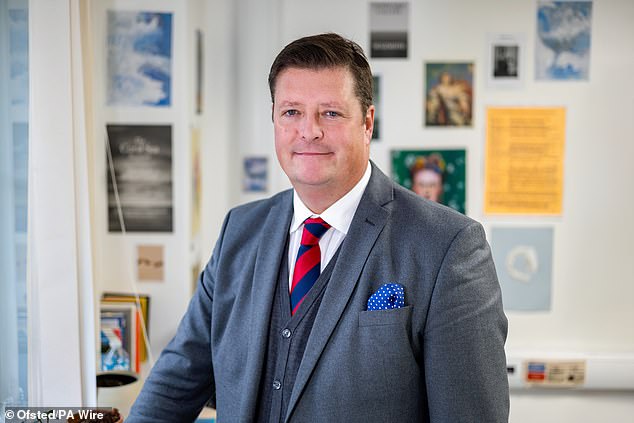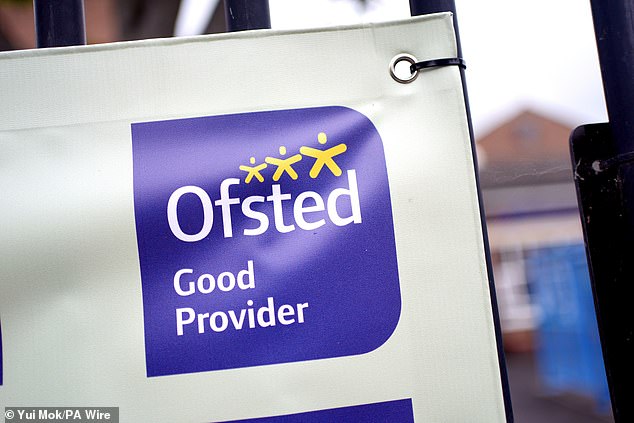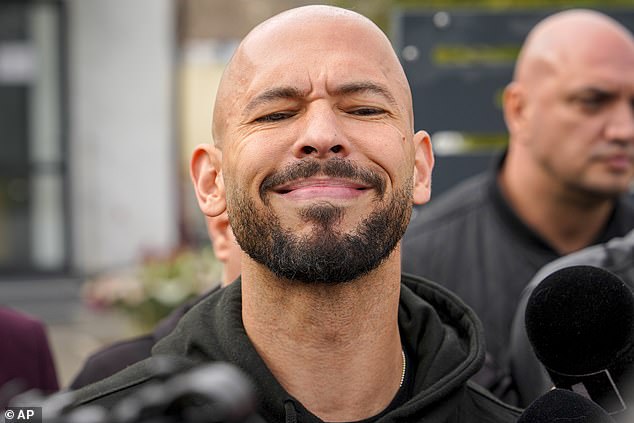Too many children are getting their ‘life lessons’ from artificial intelligence and online influencers, the head of Ofsted will warn today.
Sir Martyn Oliver, chief inspector of schools, believes many pupils’ world views are now being shaped by shadowy figures on the internet.
Speaking at the Wellington College Festival of Education, he will say today that schools can be the antidote to pupils living their lives online.
It comes amid concerns that self-confessed ‘misogynist’ Andrew Tate and other online influencers are warping pupils’ minds.
Teaching unions have warned an increase in sexual harassment in classrooms, and in pupils having extreme views on women.
Sir Martyn will say: ‘Right now, many children live much of their lives online.
‘Socially, they are never “off” and always in touch with their friends.
‘And they increasingly receive life lessons from influencers or AI-generated summaries.
‘I would argue that the place of learning, real learning, classroom learning – with human interaction – has never been more important.’

Too many children are getting their ‘life lessons’ from artificial intelligence and online influencers, the head of Ofsted will warn today (pictured: Sir Martyn Oliver, chief inspector of schools)

Sir Martyn Oliver believes many pupils’ world views are now being shaped by shadowy figures on the internet (file picture)

It comes amid concerns that self-confessed ‘misogynist’ Andrew Tate (pictured) and other online influencers are warping pupils’ minds
He believes that while the internet can be an important learning resource, pupils should not be allowed to explore it unchecked.
‘In a way there’s something cloistered about living one’s life in a curated online environment,’ he will add.
‘You may be able to find “the best that has been thought or said” if you go looking for it.
‘But who’s guiding you through it? Where’s the human connection? And of course, where’s the protection?’
Addressing concerns that artificial intelligence may one day take over the teaching profession, he will emphasise the role of human interaction in learning.
‘Schools have never just been places of learning,’ he will add.
‘They were, and are, places of safety, even refuge.
‘Places of community and connection. Places of friendship and humanity.’












